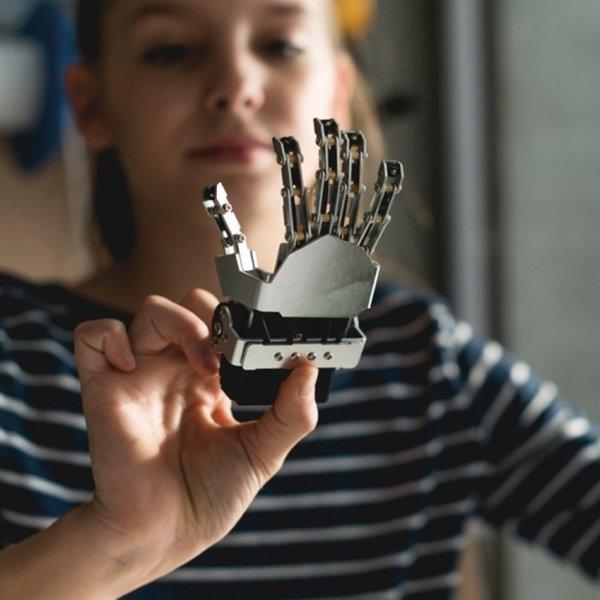
How to Go from Disconnected to Connected Programmer: Encourage and Support Women in ICT
Message published on 11-04-2022
Numerous factors influence and characterise the current digital skills gap in Europe, but the need to bring more women into tech is undeniable. Women are said to be the largest source of untapped potential in the Information and Communications Technology (ICT) field. Yet, only 20% of ICT-subject graduates in the EU are women. Historically, women used to dominate the computing field but were slowly pushed out of it as it became a desired and prestigious occupation. The current lack of women in the industry is a persistent issue, while the industry faces overall difficulties in attracting and retaining women in ICT-related jobs.
If you have taken already our Digital Skills Gap Quiz, you should know your digital skills gap persona. Maybe you are the Disconnected Programmer who is not particularly enthusiastic about software development, artificial intelligence, or machine learning. You may imagine the technology field as a group of guys speed-typing code on their computers all day. While it is indeed a male-dominated field, there are some ambitious female ICT professionals who make up 18.5% of the industry. Yet, not nearly enough women are present in the ICT field to meet industry demands and drive digital transformation forward. We all need to work towards transitioning from Disconnected to Connected Programmers who have an avid interest in technology and its multiple applications.
While the problem is clear, its causes are rooted deeper. There is an obvious failure in attracting young girls to STEM fields at an early age. Young girls’ low exposure to STEM subjects results in lower performance, which then discourages them from pursuing future careers in these fields. The few women who decide to pursue a tech career are often discouraged when they look at a company’s leadership and see only men. Only 24% of leadership positions in ICT are held by women. They want to see other women who have succeeded and know they can grow and be successful, too.
To encourage and involve women in ICT fields, EU policy strategies should be accompanied by appropriate industry action and educational support. More diversity is needed to enrich the technology field and solve current digital skills shortages. Young girls should be involved in STEM fields from an early age to raise their interest and break cultural stereotypes. While industry initiatives certainly play a major role in attracting more women to the ICT fields, these are not long-term solutions to the problem. It will take years to bridge the gender gap and prevail over stereotypes. Nevertheless, all key actors should do their part to encourage and support women in tech.
If you are truly a Disconnected Programmer, remember this: learning new languages can be fun even if they have 0s and 1s. Don’t get discouraged if it all seems too hard or too confusing. Persist in your learning process and you will witness the magic of technology. You have the power to shine and succeed even if the odds may be against you.
A message from ALL DIGITAL:
In the framework of the ALL DIGITAL Weeks 2022 raising awareness campaign, during the 11-15 April Week, we will talk about gender equality and STEM/STE(A)M topics. We will start on Monday 11th with the Week 5 Launch Event covering both these issues since it will tackle ‘’gender equality within the professional environment’’.
Gender equality will be addressed also in the webinar presenting some key aspects of the EU project EQUALS-EU, on 12 April from 14.00 – 15.00 CET. There will be an opportunity to explore what actions and recommendations have been identified so far to increase the presence of girls and women in the STEM disciplines environments and also in leadership positions.
Over the week, the ALL DIGITAL campaign will also focus on the key role of educators in delivering high-performing digital and STE(A)M Education, mainly introducing the competence framework for STE(A)M teaching practitioners and educators. During the ‘’Policy recommendations to STE(A)M-on Edu’’ webinar on 13 April from 14.00-15.30 CET, there will be a thoughtful discussion on highly relevant policy recommendations developed thanks to the STEAMonEdu Erasmus+ project activities and stakeholders’ contribution, with the ultimate goal of enhancing digital skills and overall problem-solving competencies for the digital age.